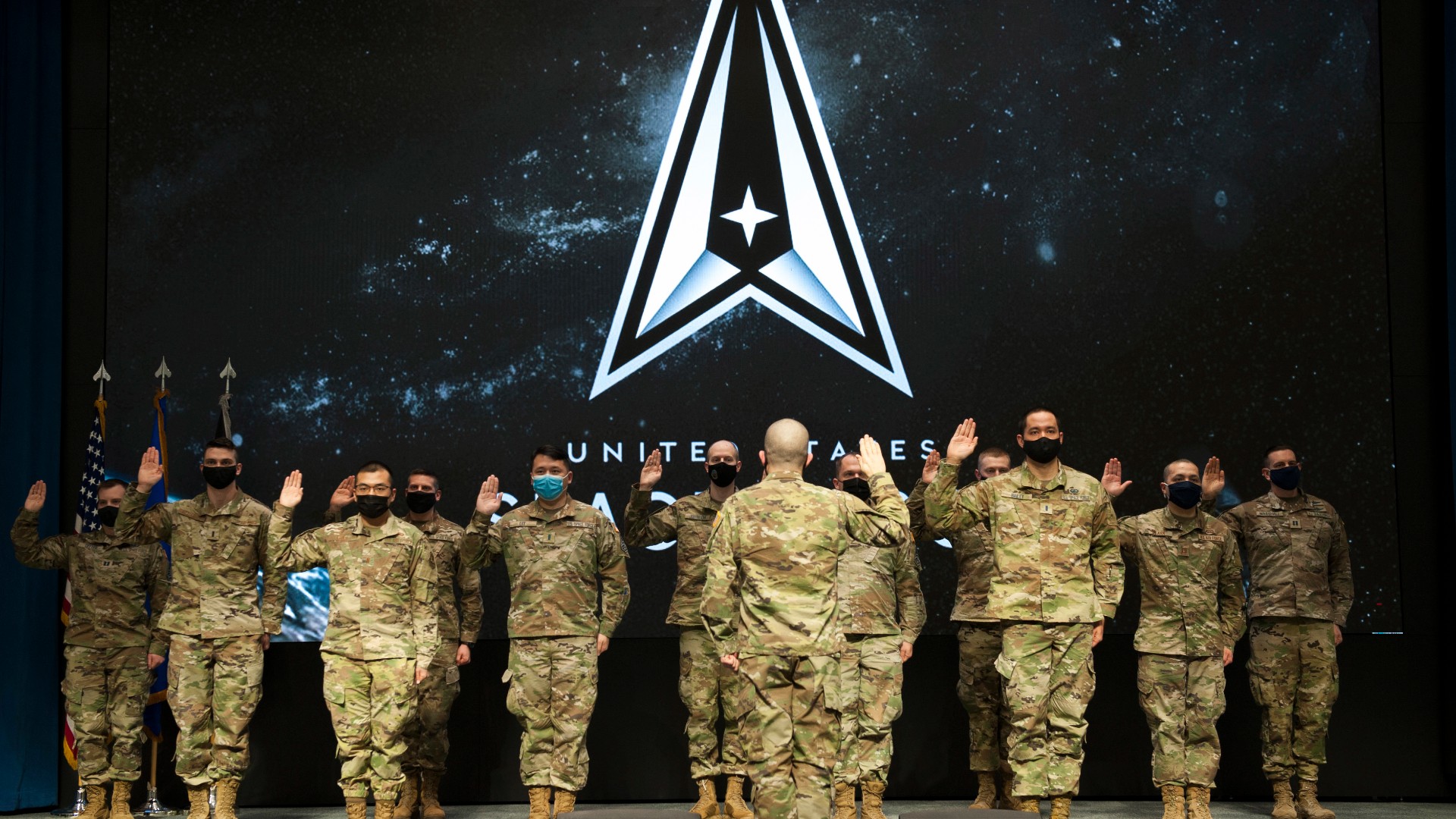National Guard in space? White House says no thanks
The White House has urged Congress 'not to create a new bureaucracy with far-reaching and enduring implications and expense.'

Breaking space news, the latest updates on rocket launches, skywatching events and more!
You are now subscribed
Your newsletter sign-up was successful
Want to add more newsletters?

Delivered daily
Daily Newsletter
Breaking space news, the latest updates on rocket launches, skywatching events and more!

Once a month
Watch This Space
Sign up to our monthly entertainment newsletter to keep up with all our coverage of the latest sci-fi and space movies, tv shows, games and books.

Once a week
Night Sky This Week
Discover this week's must-see night sky events, moon phases, and stunning astrophotos. Sign up for our skywatching newsletter and explore the universe with us!

Twice a month
Strange New Words
Space.com's Sci-Fi Reader's Club. Read a sci-fi short story every month and join a virtual community of fellow science fiction fans!
The office of United States President Joe Biden has voiced opposition to the creation of a Space National Guard.
The U.S. National Guard is a military reserve force made up of part-time members who hold civilian jobs but can be called up to full-time service when needed. The National Guard is also used within the United States to respond to domestic emergencies such as natural disasters. Currently, the Army and the Air Force have National Guard reserve components, but the U.S. Space Force does not. Several lawmakers in Congress have previously proposed the idea of creating a Space National Guard to provide part-time forces to bolster Space Force personnel numbers. But the push has yet to receive enough support to make it into law.
Now the White House has voiced its opposition. On Monday (July 10), the Executive Office of the President of the United States issued a statement that argues against the creation of a Space Force element of the National Guard. "The Administration continues to strongly oppose the creation of a Space National Guard," the White House's statement reads, urging Congress "not to create a new bureaucracy with far-reaching and enduring implications and expense."
Related: What is the U.S. Space Force and what does it do?
Several lawmakers and former servicemembers have voiced their support for a Space National Guard in recent months, arguing that control of the U.S. military's space assets should be controlled by a single service, namely, the Space Force.
"Air National Guard personnel provide fundamental capability to the Space Force today," Air & Space Forces Association President and CEO Lt. Gen. Bruce Wright, USAF (Ret.) said in June.
"Logically, moving those Guardsmen into the Space Force is the right thing to do, ensuring space remains under the control of a single service," Wright added. "A New Space National Guard does not need to be large and unwieldly. It can comprise just those units we have today. And it can do so without a lot of complicated infrastructure."
Breaking space news, the latest updates on rocket launches, skywatching events and more!
President Joe Biden's office disagrees. Instead of creating a Space National Guard, the White House's statement calls for a new management structure within the existing Space Force that could achieve some of the same goals that a Space National Guard would, namely creating flexibility for Space Force Guardians to more easily move between full- and part-time service.
The White House's statement argues that the proposed Space Force Personnel Management Act (SFPMA) would offer the same part-time flexibility that a National Guard space component would, but without the red tape and costs that come with creating an entirely new branch of the National Guard.
Furthermore, the statement makes it clear that, since the Space Force's mission is "federal in nature and global in impact," it does not make sense to offload some of that mission to the National Guard, which is overseen at the state level.
"The existing National Guard space equipment was procured and is sustained with Federal funding. Further, Air National Guard space missions are overwhelmingly housed on Federal land, and are largely maintained by the regular Air and Space Forces," the White House's statement reads.
The creation of the U.S. Space Force in December 2019 was no less controversial, and some of the same arguments were made against it that the White House is now making against the proposed Space National Guard, namely questions of funding and excess bureaucracy.
The U.S. Space Force is the smallest branch of the U.S. Armed Forces, with just under 8,600 total members. The U.S. Navy, by comparison, has over 300,000 active duty members and the U.S. Army close to 500,000 active personnel.

Brett is curious about emerging aerospace technologies, alternative launch concepts, military space developments and uncrewed aircraft systems. Brett's work has appeared on Scientific American, The War Zone, Popular Science, the History Channel, Science Discovery and more. Brett has degrees from Clemson University and the University of North Carolina at Charlotte. In his free time, Brett enjoys skywatching throughout the dark skies of the Appalachian mountains.
